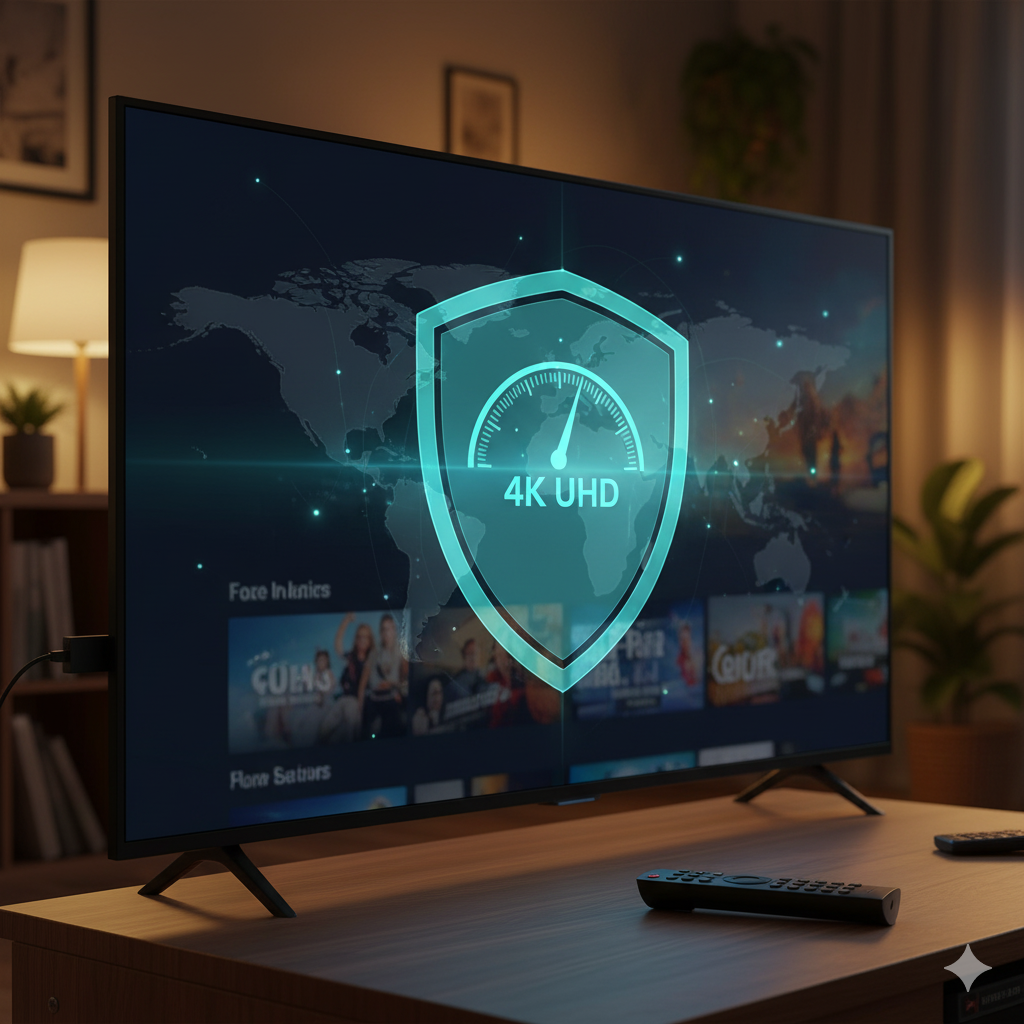Streaming performance on Firestick devices can be influenced by numerous factors, including network speed, server location, and ISP throttling. The question “will a VPN get me better streams on Firestick” is common among IT professionals and advanced users seeking consistent playback quality while accessing geo-restricted content. In this article, we will explore how VPNs interact with Firestick streaming, their advantages, limitations, and practical deployment strategies.
Will a VPN get me better streams on Firestick by reducing buffering?
A VPN can potentially reduce buffering if your Internet Service Provider (ISP) throttles streaming traffic. By encrypting your connection, a VPN masks the type of traffic, preventing ISPs from selectively slowing down streaming protocols. However, if your base connection is already constrained by bandwidth or latency, a VPN may add slight overhead, sometimes increasing buffering instead of reducing it. Testing with reputable VPNs that maintain high-speed servers optimized for streaming is critical (source: TechRadar).
How does a VPN help with geo-restricted content on Fire TV Stick devices?
Geo-restrictions limit access to certain streaming services based on IP address location. A VPN allows Firestick users to connect to servers in supported countries, effectively bypassing geographic blocks. This method is especially relevant for international content libraries on platforms like Netflix, Hulu, or Amazon Prime Video. Users must select VPNs that support Firestick natively or can be configured on a router to cover the device network-wide.
What are the hardware and OS limitations on a Firestick that impact streaming with a VPN?
Firestick devices, especially older models, have limited CPU and RAM resources. Running a VPN client alongside high-definition streaming can cause performance degradation, manifesting as dropped frames or slower app responsiveness. Fire OS itself may not support all VPN protocols natively; L2TP/IPSec and OpenVPN are commonly supported, whereas newer protocols like WireGuard may require additional configuration. Network engineers often deploy VPNs on routers instead of the device itself to offload encryption tasks, maintaining optimal streaming quality (source: Wikipedia).
What criteria should you use to pick a VPN for Firestick streaming performance?
Key selection criteria include:
- Server network size and location diversity: More servers reduce load and improve routing flexibility.
- Protocol support: WireGuard offers better throughput with lower CPU usage, while OpenVPN is widely compatible.
- No-logs policy and privacy assurances: Essential for corporate or security-conscious users.
- Firestick compatibility: Native apps simplify setup; otherwise, router or sideload configuration is necessary.
Additionally, pay attention to independent speed tests published by security blogs or media review sites to validate claims (source: Cloudflare Learning).
How do router-based VPNs compare to device apps when using Firestick for streaming content?
Router-level VPNs encrypt all traffic entering the network, covering multiple devices including Firestick. This approach ensures consistent performance without taxing the Firestick’s limited resources. Conversely, device-level VPN apps encrypt only the device traffic, which may introduce latency or CPU load if the Firestick model is older. Router deployment is preferred in multi-device environments, particularly in corporate or shared residential setups.
Are there legal or terms-of-service risks when using a VPN for streaming on Firestick?
While VPN usage is legal in most jurisdictions, streaming services may enforce terms-of-service clauses prohibiting content access via VPNs. Companies like Netflix have sophisticated detection systems, and persistent VPN use may trigger account restrictions. For IT managers, it is prudent to balance compliance with operational requirements, ensuring VPN use aligns with corporate policies. Resources from security blogs often provide guidance on navigating these risks (source: Kaspersky Blog).
Constraints and performance:
Testing Firestick streaming over a VPN should account for variables like ISP speed, network congestion, VPN server load, and the encryption protocol used. WireGuard generally offers superior throughput compared to OpenVPN, but protocol availability depends on the VPN vendor and Firestick model. Additionally, Wi-Fi signal strength and router placement affect performance; Ethernet adapters for Firestick can reduce variability. For corporate environments, routing VPN traffic through a high-capacity router ensures multiple devices maintain optimal streaming without throttling.
Internal links to consider: users interested in comparative VPN performance may explore AirVPN vs NordVPN: Which VPN Offers Better Security & Speed? for detailed benchmarks.
How does server location affect streaming speed on Firestick when using a VPN?
Server proximity and load are critical factors in VPN performance. Connecting to a server geographically closer to the content source reduces latency, packet loss, and buffering. Conversely, using a distant server can increase round-trip time, sometimes negating the benefits of bypassing ISP throttling. Many high-tier VPNs provide automatic server selection optimized for streaming, which dynamically chooses the fastest and least congested server. Network engineers should monitor ping and throughput metrics to validate performance improvements (source: TechRadar).
Can a VPN improve streaming quality on congested networks?
In congested networks, a VPN may offer marginal improvements if ISP traffic shaping is the primary bottleneck. By encrypting traffic, the VPN prevents ISPs from applying deep packet inspection techniques to throttle bandwidth-intensive applications. However, if overall network bandwidth is saturated, VPNs cannot create additional throughput; the benefit is primarily in prioritizing or masking streaming traffic. Advanced users may combine VPN use with Quality of Service (QoS) settings on routers to optimize traffic flow for Firestick streaming.
Are there VPN settings specifically recommended for Firestick streaming?
Yes, several configuration tweaks can enhance performance:
- Split tunneling: Route only streaming traffic through the VPN while keeping other devices on the regular network.
- UDP vs TCP protocols: UDP offers lower latency suitable for real-time video, while TCP provides reliability for interrupted connections.
- Automatic server selection: Reduces manual testing and ensures the fastest route.
- Kill switch: Protects privacy if VPN connection drops unexpectedly, preventing IP exposure.
How do VPNs interact with Firestick apps like Netflix, Hulu, or Prime Video?
Most Firestick streaming apps detect VPN usage to enforce regional content licensing. A high-quality VPN with obfuscation features can circumvent these restrictions, but service policies may still block certain IP ranges. For enterprise or professional users, maintaining a pool of servers dedicated to streaming is a common strategy. Monitoring VPN IP reputation is also essential; many public IPs are flagged by content providers, which can temporarily limit streaming access.
Conclusion
In summary, the answer to “will a VPN get me better streams on Firestick” depends on network conditions, VPN quality, and device constraints. Properly selected and configured VPNs can reduce buffering, bypass geo-restrictions, and provide secure connections, improving overall streaming experience. Network engineers and IT managers should evaluate server location, protocol choice, and hardware limitations when deploying VPNs for Firestick. For detailed VPN comparisons and performance benchmarks, see AirVPN vs NordVPN: Which VPN Offers Better Security & Speed?. By understanding these factors, you can maximize streaming quality while maintaining security and compliance.
External links included: TechRadar, Wikipedia, Cloudflare Learning, Kaspersky Blog.
Internal links included: AirVPN vs NordVPN benchmark page.



